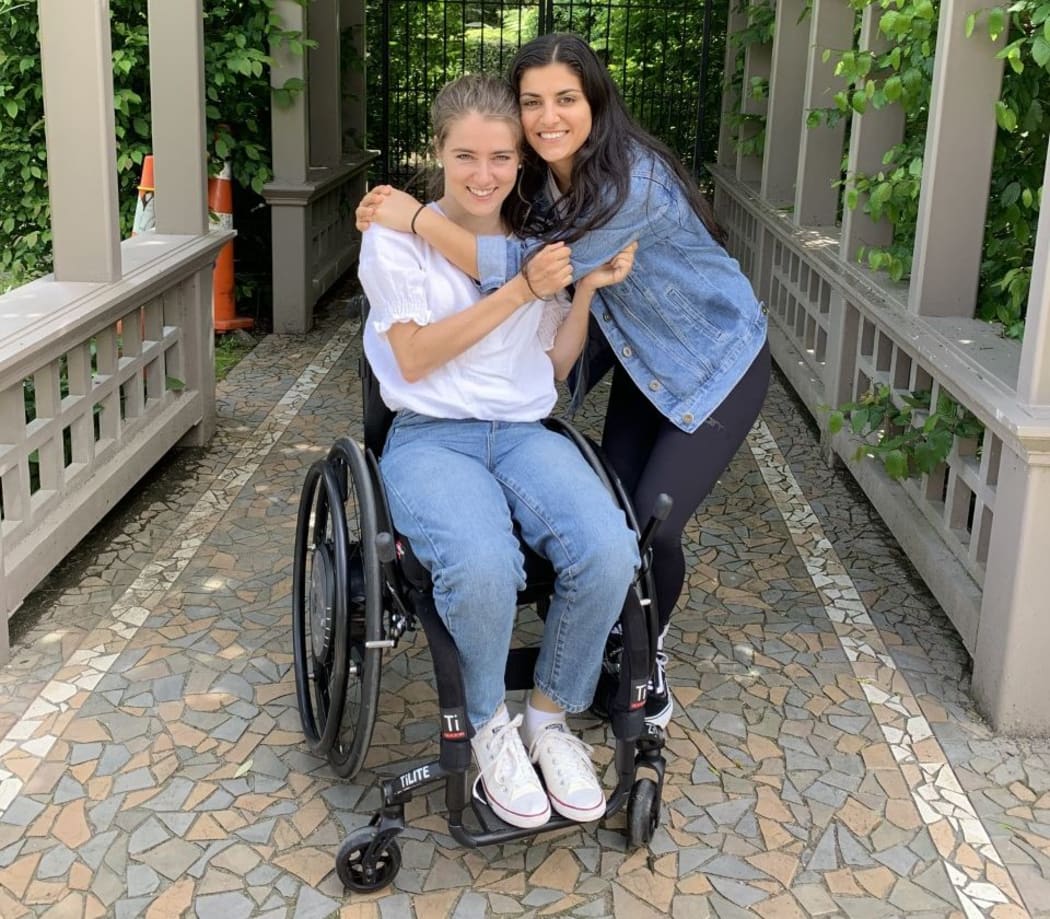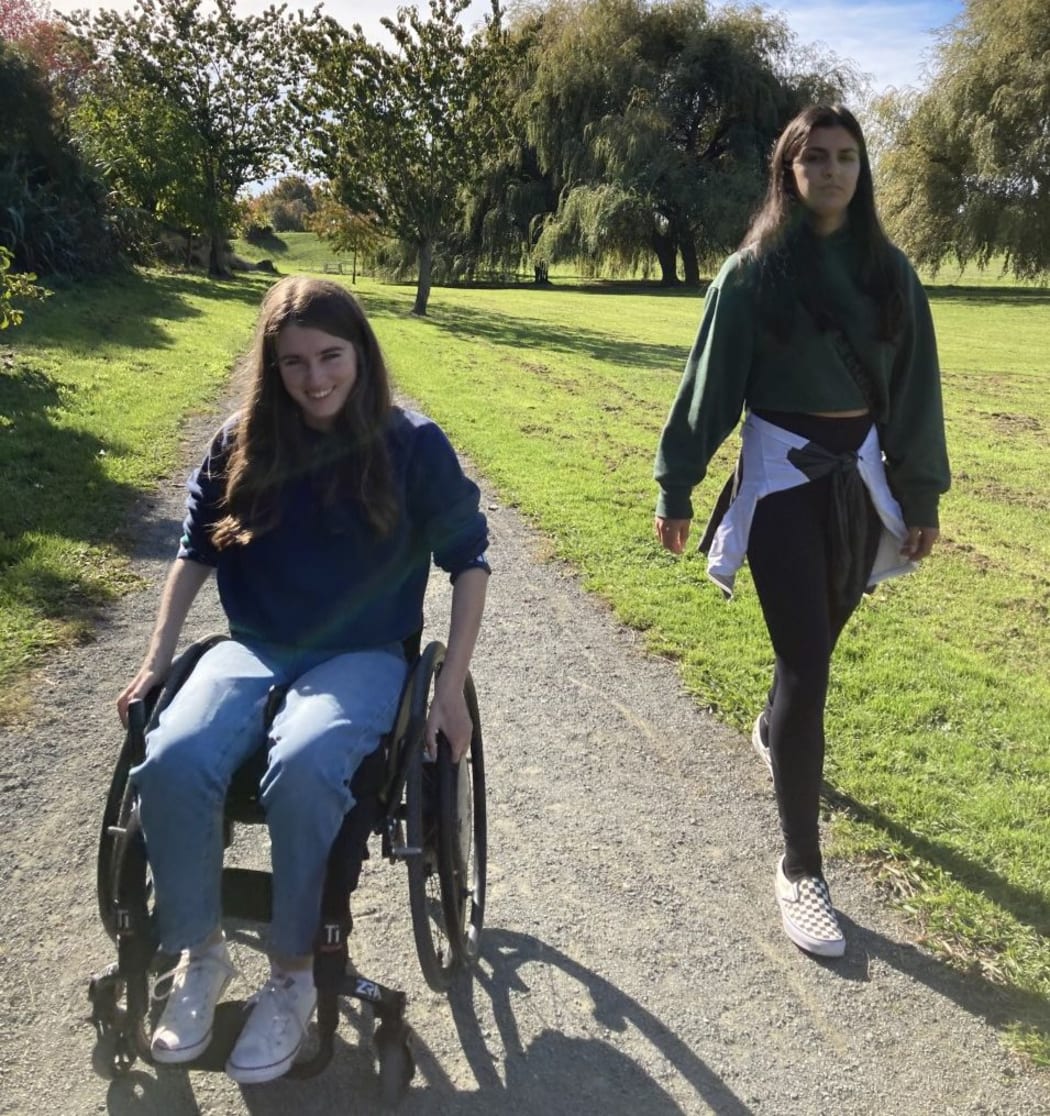The disability support sector says it is facing a critical staffing crisis for support workers, with higher paying hospital roles making it impossible to retain staff.
Young people living with a disability say there are not enough workers of a similar age, bringing stigma and shame when out in public.
In 2016 a horse riding accident left Sophia Malthus paralysed and in a wheelchair.
Now the 25-year-old relies on support workers 24/7, with two workers a day, each covering 12 hour shifts.
But it has been difficult to find support workers around her age.
"I guess I'm at the age where a lot of people are travelling... but also a lot of people that are interested in this job are student nurses and so they'll come for like their last year and then they'll leave to go work in the hospitals."
Relying on older carers has a huge impact on whether she wants to leave the house or not.
"I could tell that people were looking at me and knowing that this was like a caregiver, disabled client relationship and that made me feel really uncomfortable. So that definitely impacted how often I went into the community and was seen."

Sophia Malthus and her caregiver and friend Indy. Photo: Supplied by Sophia Malthus
Sophia has managed to find a few workers similar to her, including Indy.
The pair's relationship has grown so close over the years, they are less like workers and more like sisters.
Finally Sophia is able to go about her day without looking like she needs to be taken care of.
The pair spend time walking her dogs Bear and Mindy, eating out, doing hair and makeup and quizzing each other on their law studies.
"Really just anything that two friends would do together we do together because we are friends, even though she gets paid to hang out with me. We always tell the joke, that sometimes I should be the one getting paid to look after her."
Indy originally moved up to Auckland to pursue an acting career but that was not paying her rent.
When Sophia offered her a job two years ago she was hesitant to take on what she thought was a healthcare role.
"At the start I was like that is not my skill set... I didn't think I'd be doing this full time."
A traditional day starts with getting Sophia out of bed, cooking or cleaning - then they simply hang out.
"Honestly every day looks different like you're essentially helping someone go about their day and live their life, so you get to do all the fun stuff that's in their life and just kind of help them out, you don't ever really get bored."

Sophia says her and Indy are friends "even though she gets paid to hang out with me". Photo: Supplied by Sophia Malthus
'It's not just a job, this is a career about human beings supporting people'
Manase Lua from Te Pou's Disability Workforce Development programme said they need more people like Indy in the workforce.
"So we're looking to target Māori, Pasifika, Asian, particularly males to come into the workforce, right now the workforce is largely female European and over 50."
While carers can upskill and train in the role, they do not need qualifications to begin.
"It's not just a job, this is a career about human beings supporting people, helping and assisting and also getting to know that person and allowing that person to tell you how they would like to be supported and cared for. All you need is a good heart, a caring personality and matching you with someone that has similar behaviours."
There are currently more than 1000 vacancies on Seek - for each vacancy, there is a person whose freedom and independence is compromised if they cannot get help.

Although Indy (left) was originally hesitant about taking on the role of caregiver to Sophia, she said it was really just about helping someone out. Photo: Supplied by Sophia Malthus
A recent survey of disability support network members reported an 11 percent vacancy rate, many for more than a year.
In 2017 a pay equity case ruled disability support workers should be paid close to the hospital health care assistant pay rate - but that is no longer the case.
Disability Support Network chief executive Peter Reynolds said health care assistants working in hospitals were about to get a 30 percent pay increase.
"What's going to happen to disability support workers now? Because the job is very much the same. What we fear is that some people working in our sector are going to say, well, if there's a vacancy in a DHB (district health board), why wouldn't I go and work there when I'm going to be paid 30 percent more than what I'm getting at the moment."
The minister of disability issues Poto Williams has not responded to Checkpoint's request for comment.


